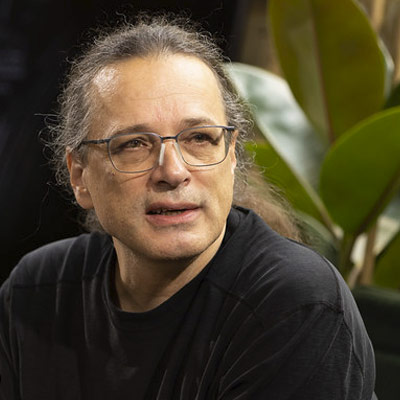

Who Owns the Truth?
The theme of Ars Electronica in 2023, this year formulated as a question, aims directly at key disputed topics of our time: truth and ownership, interpretive authority and sovereignty. Can truth be owned? Is there a right to truth and if it does belong to someone, what control and responsibility are associated with it?
How do we ask ourselves such questions in this age of global interconnectedness and the rapidly developing performance of so-called Artificial Intelligence?
In an age, moreover, in which a small number of people, in neo-feudalistic fashion, have usurped the management of collective knowledge, and in which we also have good reason to doubt whether the vision of technology represents the solution to our problems.
Behind this lies the central question as to how we can make the fantastic achievements of science and technology accessible for ALL people – and usable. It is not enough just to think about how we can prevent AI systems from harming someone (even though that is vitally important). A tool that is so much based on the globally collective “raw material” of knowledge, creativity etc., must be harnessed to the benefit of all, too.
In recent years, we have thought a great deal about “Digital Humanism”; it is time now to think about a form of “Digital Socialism”, meaning a “commonwealth”, a “social contract” with which we can overcome the profound, wide-ranging changes of the digital age, and even more, the globally collective consequences of climate change.
Admittedly, this is a nearly insurmountable challenge, yet it is just for such a vision that a festival like Ars Electronica should and can stand. A festival that is extraordinary in every respect, at which for more than 40 years under the heading “art, technology and society” thought has been given not only to how technology alters our society, but also to revealing how art and society can themselves shape technology.
Ars Electronica 2023 – what’s it about?
It’s about truth as a manifesto of interpretive authority and sovereignty, about dealing with the loss of the claim to “the” truth and thus, that we have to get used to thinking of truth as plural.
It’s about truthfulness as the basis of the values of the “authentic” and “original” as we perceive them, and how these terms have already been transformed in the digital realm.
It’s about the collective synchronization of perception as a strategy for fake information and conspiracies in the social media and the machinations of the lobbies and large-scale industry, from influencing the scientific bases of man-made climate change to the deceptions of the diesel scandal.
It’s about freedom of speech and opinion, about how we deal with obvious liars, right up the very highest offices of state, and how we deal with people who publish unpalatable truths, such as Edward Snowden and Julian Assange, for example.
It’s about whether the truth is acceptable to people and about the significance of scientific insight and evidence.
It’s about the concept of ownership and the right to profits from intellectual work and performance in the transition from the automation of machines to the autonomisation of knowledge and content generation – from digital copy and paste to cultural appropriation in a globally networked world.
Intellectual Property and Copyright, as the central pillars to date of the content and creative industry, are already no longer able to reflect adequately the changes in digital networking – never mind all that is coming our way with the systems of OpenAI, etc.
But it’s also about the concept of ownership as it relates to nature, going beyond the centuries-old philosophical and legal debate; it’s about the factual reality of the exploitation and destruction of nature as an unremitting burden being transferred to following generations.
And, of course, it’s about all that we believe, fear or hope will change in the wake of so-called Artificial Intelligence.
But in its essence, it’s about demonstrating how artists from all over the world, through collaboration as well as confrontation with technology and society, are working on this topic.
In association with the prize-winners of the Prix Ars Electronica, the projects arising from the many local, European and international cooperations and networks, the curated theme-based exhibition and newly commissioned works, concerts and performances, symposia and workshops.

Gerfried Stocker,
Co-CEO / Artistic Director Ars Electronica
Gerfried Stocker (AT) is a media artist and an engineer for communication technology and has been artistic director and co-CEO of Ars Electronica since 1995. In 1995/96 he developed the exhibition strategies of the Ars Electronica Center with a small team of artists and technicians and was responsible for the setup and establishment of Ars Electronica’s own R & D facility, the Ars Electronica Futurelab. He has overseen the development of the program for international Ars Electronica exhibitions since 2004, the planning and the revamping of the contents for the Ars Electronica Center, which was enlarged in 2009, since 2005; the expansion of the Ars Electronica Festival since 2015; and the extensive overhaul of Ars Electronica Center’s contents and interior design in 2019. Stocker is a consultant for numerous companies and institutions in the field of creativity and innovation management and is active as a guest lecturer at international conferences and universities. In 2019 he was awarded an honorary doctorate from Aalto University, Finland.